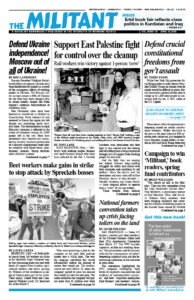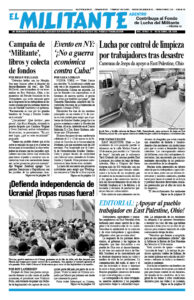SEATTLE — Small logging farmers in Washington state are waging a battle with the state Forest Practices Board that controls logging on private land. It involves state regulations enforcing excessively large buffers that the farmers are required to maintain next to area streams. Buffers stabilize riverbanks, hold back sediment and farm chemicals, and protect fish and other animals.
A parallel battle is taking place against efforts by Gov. Jay Inslee to impose new and similarly large mandatory buffers on agricultural farmland statewide.
The Washington Farm Forestry Association, which represents thousands of small tree farmers and forestland owners, spent eight years building its case that well-managed 50- to 75-foot buffers, rather than the state required 90- to 200-foot buffers, will be just as effective at protecting fish and water, while allowing farmers access to more of their land for harvesting.
About 5,000 landowners are affected. Over 200 small tree farmers testified in writing in support of narrower buffers.
“Our forest legacy relies heavily on effective and economical environmental generational ownership. We are Stewards of our forest and would like the opportunity to manage our land (for generations to come),” the members of the Goodman family wrote to the board. “As family forest owners, we strongly believe that we care about the environment more than most, AND we care for all those depending on forestland.”
Last November, the Forest Practices Board rejected the proposal for the smaller buffers in an 8-4 vote with no explanation. Ken Miller, who has led the fight to reduce the size of the buffers, staged a sit-in protest after the board’s vote. “I respectfully decline to leave this table,” he said, adding, “I don’t know any other way of getting meaningful attention. All of our options are bad.”
Washington Farm Forestry Association Executive Director Elaine Oneil told the board that other farmers were watching. “I can’t imagine that this is going to go down favorably in the rural hinterlands.”
Inslee backed a bill in January imposing 200-foot buffers next to waterways on all farms.
“If it’s 200 or 220 feet, 30% of the state’s agriculture would be taken out,” Fred Likkel, executive director of Whatcom Family Farmers, told the Militant. “Too many would lose, and for some guys that would be it [for farming].”
Landowners who don’t plant and maintain buffers would face fines of up to $10,000 per day. Inslee says opponents of the measure would be responsible for greater loss of salmon.
“My answer to that is bullsh–t,” said Washington State Dairy Federation Policy Director Jay Gordon, “we have groups of farmers and tribes who have met for years on this and continue to meet.” Gordon says the buffers would take up too much land, particularly in western Washington, for dairies to grow feed for their cows.
An alternative bill was proposed this year on behalf of farm groups and many tribes, but is opposed by Inslee. The bill would compensate farmers for voluntarily taking land out of production and planting buffers.
Inslee administration officials criticized the new bill for leaving state agencies off a task force that would monitor the program.

